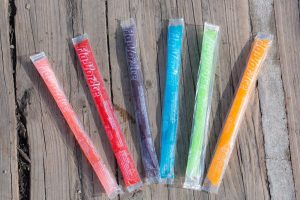COVID-19 creates obstacles, confusion at concerts
October 12, 2021
https://www.instagram.com/p/CSfupcUNW2c/
Tickets? Check. Mask? Maybe.
Since the Coronavirus pandemic hit in March of 2020, many concert venues across the U.S. have been working on how they are planning to reopen, as well as their precautions to keep guests safe. Now, almost all stadiums are open and operating at full capacity again, although many have unclear COVID-19 protocols.
Hershey Entertainment, which manages multiple venues including Hersheypark Stadium and the Giant Center, has left the policies up to the individual tours, so whether proof of vaccination or a negative Coronavirus test is needed is a common question. Tours such as Zac Brown Band and Luke Bryan did not require vaccinations or negative tests, but other bands, such as Maroon 5 and The Jonas Brothers, have. Concert goers are encouraged by Hershey Entertainment to find an artist’s rules and policies on their personal website.
Hershey Entertainment listed only one Covid-19 policy on their website, “All guests regardless of vaccination status are strongly encouraged to wear face coverings inside Giant Center. Guests are free to continue to wear face coverings anywhere on property if they choose to do so.”
Many nearby venues, including Wells Fargo Center, Capital One Arena, and PPG Paints Arena, are similar to Hershey Entertainment when it comes to their policies. All of these stadiums have handed over the responsibility to the touring groups when it comes to deciding their regulations and informing fans of the rules.
While this is an easy way for the venues to get out of having to deal with the precautions themselves, this method makes it much more confusing for anyone who is trying to attend the concerts.
Many artists, such as Dan + Shay, do not have any information about mask or vaccine requirements on their website. As a result, attendees of these concerts will not know how to prepare and what they will need to bring with them.
However, not all venues are following the ideology that tours can come up with their own Coronavirus precautions.
Madison Square Garden, one of the world’s most famous arenas, reopened at full capacity in June of this year. They have a fairly clear arena policy which states that all guests who are twelve years old or older are required to have at least one dose of the COVID-19 vaccine in order to attend events in the venue.
Anyone under the age of twelve does not have to be vaccinated, but they do need proof of a negative Coronavirus test taken only a few days before the event. All attendees who have not been fully vaccinated for at least 14 days must wear a mask the entire time that they are in the venue. There are events at the arena that have stricter policies, such as requiring all individuals to be fully vaccinated, however all occupants of the building must follow the arena policies, at the bare minimum.
The Madison Square Garden website has all of their requirements stated on their website. One section regarding the planning for events says, “Please note that some events require that all guests be fully vaccinated against COVID-19. Because COVID-19 vaccination requirements vary by event, it’s important for you to check your event page on our website to confirm details of your specific event.”
The event page has all of the information for each individual concert. It states mask and vaccination requirements, along with negative testing policies. The site also has information on ticketing, since the virtual tickets may confuse some people.
Because MSG has an arena-wide policy, anyone attempting to attend concerts there will know exactly how they need to prepare. Other venues located in New York, as well as those in California and Canada, also have set procedures, keeping it simple for concert goers in those areas.
Madison Square Garden’s regulations are similar to the CDC guidelines, in which they suggest masks on everyone in crowded indoor spaces, including the vaccinated. If exposed to COVID-19, the CDC states that you should be tested 1-3 days within exposure, regardless of vaccination status. Those who are unvaccinated should quarantine until a negative coronavirus result is received. Quarantine is not required for anyone who is vaccinated. The CDC recommends these guidelines for large gatherings.
The CDC still recommends virtual gatherings in order to prevent spreading the virus to the most vulnerable.
“Gathering virtually or with the people you live with is the safest choice,” the CDC recommended on August 15th, 2021. “Have a virtual gathering, like a virtual party, concert or sporting event with friends and family.”







